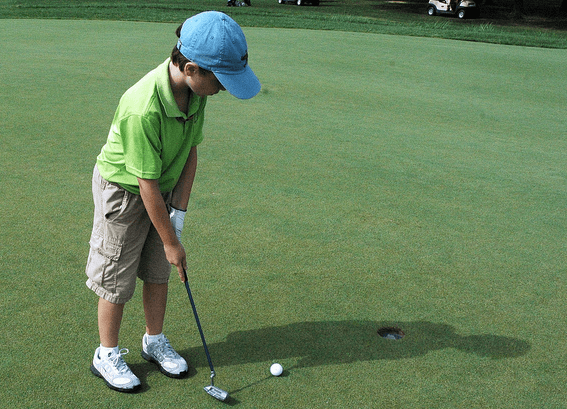
Mental Coaching for the Junior Golfer, part 2
This is part two of Mental Coaching for the Junior Golfer. Read Part 1 here.
What are the four most important issues for the parent of a Junior Golfer?
· Non-attachment to your child’s performance.
· Trust
· Unconditional Love
· Patience
Let’s take a brief look at each of these.
Non-attachment to Your Child’s Performance
It is a common occurrence in junior sports to have parents so emotionally involved in their child’s performance that they become a liability. The AJGA had to implement rules for parents’ involvement with the child during competition because of this issue. Little League has done the same. Why do parents become too involved to the point that it actually impairs their child’s performance?
First of all, parents can become too focused on outcome. They forget that the process of learning and the ability to focus on the moment creates a better outcome.
Second, their own identity becomes too wrapped up in their child’s performance. They are too emotionally involved in outcome and it affects their own sense of well-being.
Third, parents can set high expectations that are very difficult to achieve. Perfection in golf is not a realistic goal. Mistakes will happen and breakdown will occur. How a child recovers from these setbacks is the important thing.
A parent needs to have a life and identity beyond that of their child golfer. If they are to provide a solid and stable parental environment and be a positive role model, they need to demonstrate that there is more to life than golf.
Trust
A parent cannot micromanage their child and expect to help him or her develop and strong, independent sense of self. A part of trust is letting go and allowing your children the space to learn and develop on their own. Children will respond to a parent’s expectations. If you think your child will fail, then there is a greater chance that will happen. If you believe that your child is responsible and capable, then he or she will more likely behave that way.
When a parent believes in his or her child, they feel that. The child feels more loved, valued, and respected –– all important qualities for a positive self-esteem.
Learning requires making mistakes. If a parent does not allow their child the space and opportunity to fail, they are robbing them of important life experiences. It is important for a parent to trust that his or her child will learn from the mistakes and trust them to do the necessary work to improve.
Unconditional Love
This is the foundation for good parenting. No matter what happens, a child needs to know they are loved. If love is conditional and only based on low scores and winning tournaments, then problems will arise –– if not now, then later in life. Love is the foundation for all important relationships. A good friend and fellow author, head football coach Joe Taylor of Florida A&M University, has a saying –– “they don’t care how much you know until they know how much you care.” Discipline, rules and structure are important, but they all must exist within a loving environment.
Patience
Growth and development is a process. Skill development takes time and work. Success takes a lot of dedication, commitment and hard work. If a parent expects instant results, then all that pressure will only make it more difficult for a child to perform well. It is impossible to maintain a great round of golf when, in the back of your mind, you are thinking about how your mom or dad is going to feel about your score. Good parenting requires patience to allow a child to learn over time.
Summary
Coaching for the mental game should be an important part of any long-term strategy for a junior golfer who wants to continue to play golf in college, get a scholarship, or hopes to play on the PGA Tour. Addressing the mental game provides a balanced approach along with excellent club fitting, competent swing mechanics, physical conditioning, and proper nutrition. Don’t leave out one of the foundational building blocks for a enhanced competency on and off the course.
This was written by Dr. Ronald L. Mann with website at ronmanngolf.com.
Photo by Aberdeen Proving Ground


